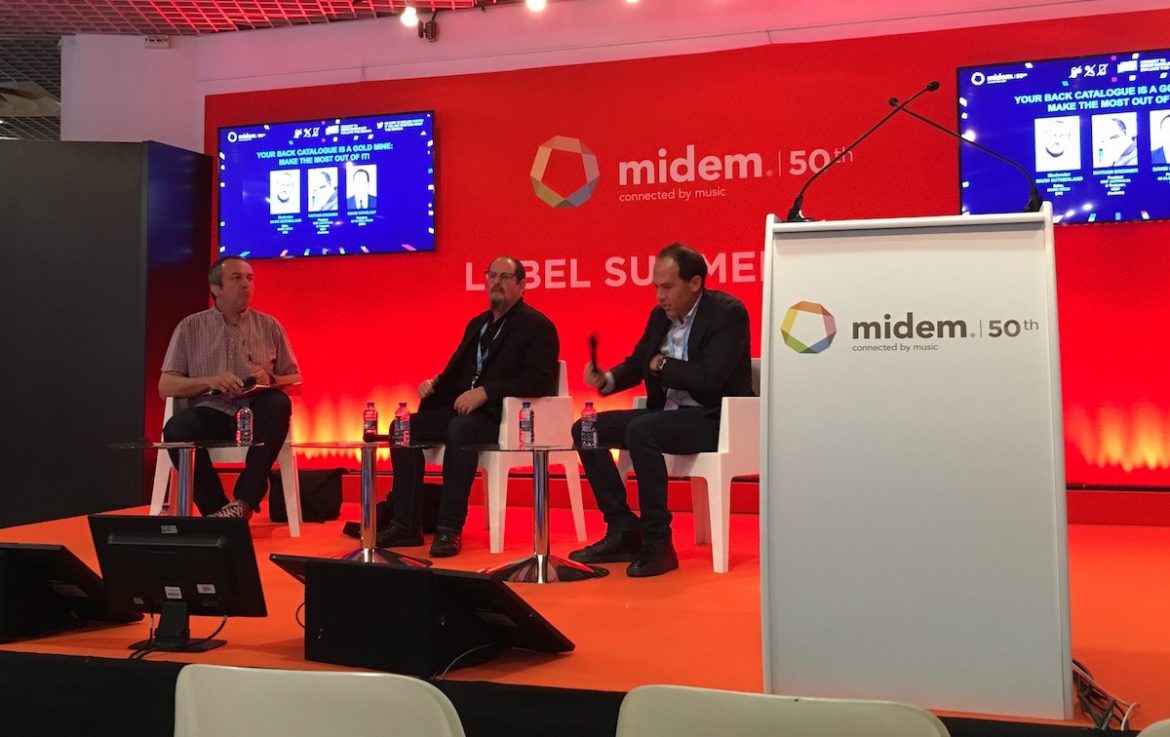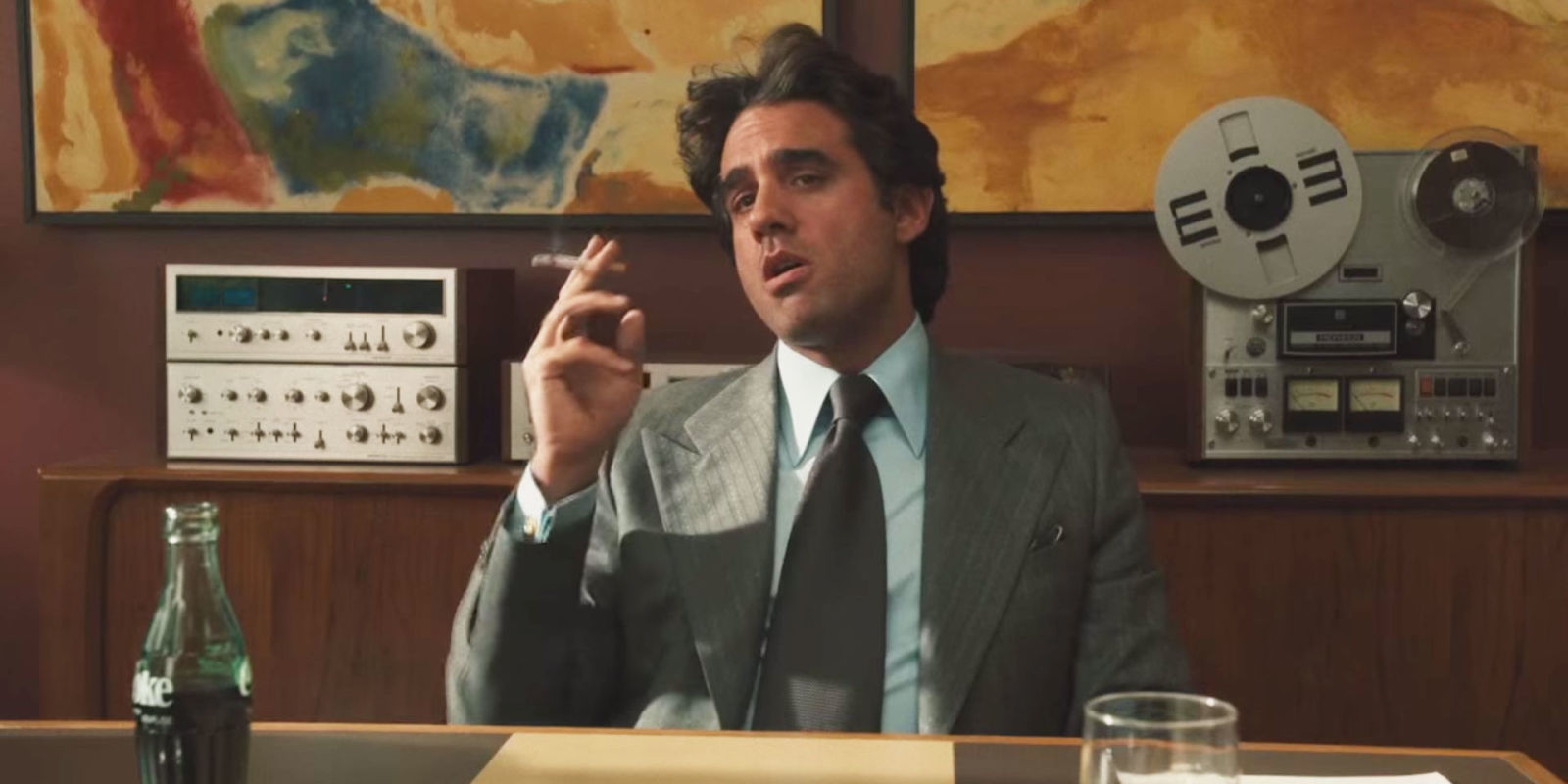We checked out the ‘Your back catalogue is a gold mine: make the most out of it!’ panel at #midem 2016, where speakers gave their advice for monetizing back catalogue. Here’s what we learnt:
As IM Global Music‘s David Schulhof initially points out, “Being a publisher or label is like being an alchemist – you can make it become a gold mine”. Here’s what we learnt from the panel discussion:
“Being a publisher or label is like being an alchemist – you can make it become a gold mine”
– David Schulhof, IM Global Music
Panelists:
Nathan Brenner – MMF Australia & IMMF
David Schulhof – IM Global Music
Mark Sutherland – Music Week (Moderator)
Key points:
Brand ID is important
David: “There’s so much content out there and producers and supervisors are inundated with music, so it’s important to know your place in the marketplace – who are you? Do you focus on really great country songs? Do you have standards? Instead of just pitching songs, really know your value and why people come to you. Brand ID is very important for turning your catalogue into a goldmine.”
Renovate your heritage acts
Nathan: “If you think of copyright like real estate, there are iconic and heritage acts that you have to renovate. You need to make that band appeal to people who originally bought it as well as enhance that somehow on the experience side – that requires renovation such as re-mastering, re-imaging, finding new content, even going back to the demos to create a new income stream, and perhaps a new audience.
Chances are if you were a band in the 80s you were probably put in a pigeon hole. There might be a whole range of songs in your catalogue that are just as good but didn’t fit into that box, so you can review all of that copyright and see if it’s still relevant to a modern time. A good song is always a good song.”
Tap into social media
David: “You need to really tap into social media and your fan base – this goes back to who you are, what your demographic is, what parts of the world your fans live in, where they go to your shows – it’s all about using social media to help drive back-catalogue sales.”
Go direct to fan
David: “Spotify isn’t doing anything for your back catalogue – you don’t need them for long-tail. Artists / labels / publishers need to be in charge of their own rights and tap into their core fan base and go straight to consumers. You don’t need to do blanket deals with Apple or Spotify to get your music out there – there are plenty of other ways to distribute music to your fans.
There are great companies out there where you can control your own rights and distribute directly to your fans. If you look at organisations like Pledge you’ve got bands like 311, big indie bands like Boston and REO Speedwagon – they’re all tapping into their fan-bases to help drive sales. To me that’s the future – I think you’re going to see a lot more direct to consumer consumption over the next 5 years.”
Re-negotiate deals
Nathan: “The major companies that control most copyrights don’t have the personnel or time or vision to really do the job that’s required – in many instances the artists they’ve signed have either passed away or they haven’t paid them. Record companies don’t have the time to nurture copyrights. If you can re-do the deals you can get more value and ownership for the original artist.
Deals from the 1980s, for example, define a record as either vinyl or tape. Record companies didn’t have any rights for digital let alone downloads, so if you can build a bridge between the existing players (the record companies and the artists), re-do the contracts and make it an equitable thing then it becomes a real income stream.”
Look out for shows like Vinyl that present great opportunities for back catalogue
David: “There are so many opportunities out there for content nowadays with Netflix, Hulu and so on creating their own original content. You’ve got great shows like Vinyl that are great opportunities for back catalogue. So as an owner of a label or publisher it’s about knowing what the production slate looks like on all the networks – what are they doing that has music you could provide? Great catalogues can be great treasure troves if there’s great film and TV content to go with it. And knowing the music supervisors that are working on those shows is obviously very important.”
Pitch your own show ideas
David: “We produce a lot of music-driven content and people come and pitch ideas to us all the time – different TV shows and movie projects. We’re in business with John Legend, we’re doing a movie on The Beatles, we’re creating tonnes of music driven content that we’re pitched all the time. Catalogue owners / publishers / labels / managers are always in our office coming up with great deas. You can’t be dormant as a rights owner – you need to be clever and come up with creative ideas. I can’t tell you how great it is to hear ideas from people that own music. Don’t be shy – come up with great ideas that are centered around your music.”
It’s not hopeless if you don’t own your own rights
Nathan: “There are ancillary income streams that the record company may not control. The biggest turnover comes from live performance so if you can renovate your copyright and get it up there like The Monkees just did with their new album, then there’s a possibility you can build a reformation tour off the back of that where the money goes directly to the artist (or a percentage of it), and merchandise off the back of that.”
Great songs are timeless
Nathan: “If it’s a great song it’s timeless. You can always regenerate the catalogue, for example just by someone covering the entire album. Band’s aren’t aware enough of the economic importance of their back catalogue.”
Catalogue management
Ok, we might be a little biased, but we were surprised when the panel failed to address the issue of metadata and effective catalogue management. As David states when describing how he looks for music on a project, “It’s time specific, it’s mood specific, it’s genre specific.” But how can you possibly know whether you have the right tracks in your back catalogue?
Accurate and descriptive metadata is, of course, essential, but having a search that is driven by this metadata (such as the one our Synchtank system provides) will no doubt save you hours of rummaging and listening, allowing you to search your entire catalogue instantly and respond to briefs immediately. If you really want to monetize your back catalogue, an effective catalogue management system is surely the best place to start?

